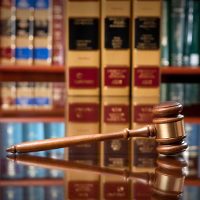The following post comes from Wade Cribbs, a 2L at Scalia Law and a Research Assistant at CPIP.
 By Wade Cribbs
By Wade Cribbs
Questions about how Chinese patent protection operates in the international patent landscape are relevant to both companies doing business in China and policymakers in the United States. Read more
 By
By  It seems no matter how many times the mole gets whacked, it keeps popping back up. The latest incarnation of this problem is a recent
It seems no matter how many times the mole gets whacked, it keeps popping back up. The latest incarnation of this problem is a recent  Following the Supreme Court’s four decisions on patent eligibility for inventions under
Following the Supreme Court’s four decisions on patent eligibility for inventions under